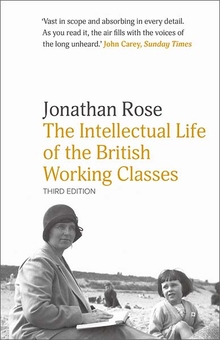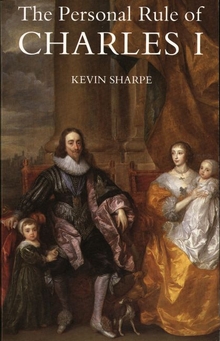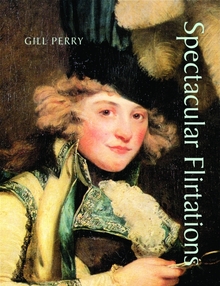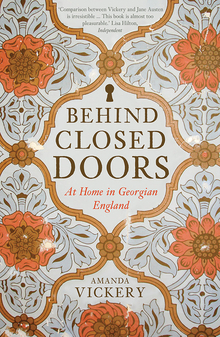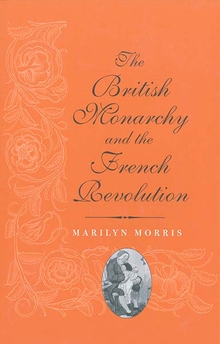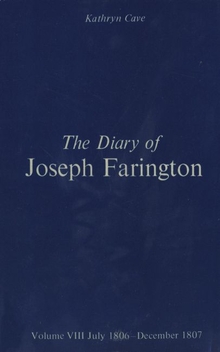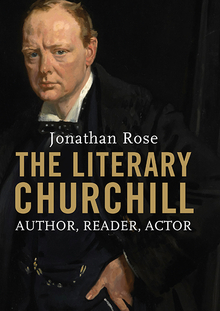The Intellectual Life of the British Working Classes
WARNING
You are viewing an older version of the Yalebooks website. Please visit out new website with more updated information and a better user experience: https://www.yalebooks.com
Third Edition
Jonathan Rose
This is a landmark intellectual history of Britain’s working classes from the preindustrial era to the twentieth century. Drawing on workers’ memoirs, social surveys, library registers, and more, Jonathan Rose uncovers which books people read, how they educated themselves, and what they knew. A new preface addresses the continuing relevance of the book amidst the upheavals of the present day.
“An astonishing book.”—Ian Sansom, The Guardian
“A passionate work of history. . . . Rose has written a work of staggering ambition.”—Daniel Akst, Wall Street Journal
Winner of the SHARP Book History Prize, the American Philosophical Society’s Jacques Barzun Prize, and the British Council Prize cowinner of the Longman-History Today Book of the Year Prize for 2001; named one of the finest books of 2001 by The Economist.
“An astonishing book.”—Ian Sansom, The Guardian
“A passionate work of history. . . . Rose has written a work of staggering ambition.”—Daniel Akst, Wall Street Journal
Winner of the SHARP Book History Prize, the American Philosophical Society’s Jacques Barzun Prize, and the British Council Prize cowinner of the Longman-History Today Book of the Year Prize for 2001; named one of the finest books of 2001 by The Economist.
Jonathan Rose was the founding president of the Society for the History of Authorship, Reading and Publishing and a founding coeditor of the journal Book History. He is professor of history at Drew University.
“Rose seems to have read virtually every published and unpublished popular memoir or diary in existence. He controls for the representativeness of this corpus by the use of oral history, educational records, library data, sociological surveys, and opinion polls in order to obtain about as accurate a portrayal of popular reader response as we are ever likely to get.”—Michael Childs, Canadian Journal of History
“This wonderful book splendidly recaptures the reading experience of the British working classes.”—Choice
“Rose’s book . . . which has the great virtues of clarity, wit and pungent opinion . . . is a brilliant and often moving record of what was achieved—a history, in its way, of discover, of individual lives enhanced by the desire to know more and to know differently. . . . it deserves its place alongside Richard Hoggart and Martin Weiner—alongside the writers who have yielded important new insights into our cultural ancestry and who shed light on ourselves.”—Ian Jack, Daily Telegraph
“This landmark book traces the rise and decline of the British autodidact from the pre-industrial era to the twentieth century. Using innovative research techniques and a vast range of unexpected sources such as workers’ memoirs, social surveys and library registers, Jonathan Rose shows which books people read, how and why they educated themselves, and what they knew. In the process he shines a bold new light on working class politics, ideology, popular culture and the life of the mind.”—Education on the Internet Newsletter
“It is an astonishing book.”—Ian Sansom, Guardian
“This fascinating book will undoubtedly become the standard work on the subject.”—Phillip McCann, History of Education
“This pioneering work provides the basis, not only for further historical research, but also for examining many of the contemporary educational and cultural issues which Rose addresses.”—Alan Morrison, History Today
“A tour de force, social history at its best.”—Matthew Price, In These Times
“Rose’s account represents a historical triumph . . . fascinatingly and passionately told.”—A. C. Grayling, Independent on Sunday
“An important book.”—Phillip Waller, Journal of Modern History
“An electric read, and a hopeful one.”—Eugene Weber, Key Reporter
“A brilliantly readable work which exposes the lie behind the word elitism—the patronising notion that works of great literature, art or music are irrelevant to the lives of ordinary people.”—London Daily Mail (Books of the year)
“The real subject of [Rose’s] book is . . . the reeading habits of the autodidact tradition within the British industrial working class from the early 19th century to the mid 20th. It’s still a big and underexplored subject, and the results of his enterprising research make fascinating reading.”—Stefan Collini, London Review of Books
“A superb book . . . much more comprehensive than anything by Raymond Williams or Richard Hoggart, and bears comparison with the best work of Edward Thompson and the late Raphael Samuel. I found the experience of immersion in it to be lastingly moving—like reading the poetry of John Clare, say, or Thomas Gray.”—Christopher Hitchens, London Times
“By combing 200 years of unexplored memoirs and surveys of the lower classes, Mr. Rose shows that there was a time when the most elite and difficult works of the Western tradition inspired neither snobbery nor shame. . . . The details uncovered by Mr. Rose are startling.”—Edward Rothstein, New York Times
“A splendid book. . . . Rose does a wonderful job explicating how a sample of working-class people experienced [the period of working-class political awakening]. . . . Nuanced, densely documented, and intelligent.”—Jennifer Levine, Papers of the Bibliographical Society of Canada
“This is an incomparable book: scholarly to a scruple; majestic in its 100-year reach; ardent in its reaffirmation of faith and what good books, splendid music and fine art may do to turn a people’s history into a long revolution on behalf of liberty, equality and truth.”—Fred Inglis, Saturday Independent
“Rose provides an immensely rich and broadly based empirical account of his subject matter; his book will be an essential reference work for decades to come.”—John Callaghan, Science & Society
"Superb. . . . Beautifully-written, sharply conceived. . . . The book represents a seminal advance in intellectual history broadly, and the history of literacy and culture. . . . We will be arguing with Rose’s analysis, and we will use the raw material from this book for years to come."—Wendy Moffat, Sharp News
“[A] magnificent book. . . . a work of truly human imagination. . . . deeply inspiring. . . . should be read with minute attention . . . by anyone with an interest in the future of our civilization.”—Anthony Daniels, Sunday Telegraph
“[R]ich and heartening. . . . This book is vast in scope and absorbing in every detail. As you read it, the air fills with the voices of the long unheard.”—John Carey, Sunday Times
"Using a range of sources, from memoirs to library registers and archives, Rose has created a portrait of working class self-education that is humbling and unforgettable."—Nick Rennison, Sunday Times
“[A] thoroughly fascinating volume. . . . Taking the period from the late eighteenth through the mid-twentieth centuries, Rose has constructed a richly synoptic history of reader responses among the British working classes to the full range of cultural products—primarily books, but also concerts, classroom experiences, radio broadcasts, and films.”—Donald H. Whitfield, The Common Review
“In this sharply original book, Jonathan Rose shows how launderesses, farm labourers, docker and domestic servants fashioned an intellectual life for themselves in circumstances that were far from ideal. Drawing on letters, diaries and unpublished memoirs of unremembered Victorians, Mr. Rose rediscovers a tradition of self-education which recent academic cultural criticism has tended to devalue.”—The Economist
"Magnificent. . . . Universally, and rightly, lauded in hardback, Rose’s panoramic and moving history of the autodidact tradition illuminates a vanished past."—The Independent Magazine
“This book is a treasure chest, and deserves pride of place in any decent ideological library.”—The Oldie
“Rose has written a book which is a simple pleasure to read. It could be read and enjoyed by any literate adult with a modicum of curiosity. The essential pleasure of the book lies in its style. Rose writes in a cheerful and friendly manner, without jargon or cumbersome theory. The book is full of ideas. . . . Roses’s book is a thoroughly fascinating source of history, anecdote, argument and, above all, hope.”—Alan Dent, The Penniless Press
"Fascinating. . . . [Rose] shines a bold new light on working-class politics, ideology, popular culture and the life of the mind."—Sally Cousins, The Sunday Telegraph
“Magnificently researched . . . . A compelling testimony to the power of the written word to transform individuals’ lives.”—Kate Flint, Victorian Studies
“[E]ven the weariest cultural warrior will have to make room for Jonathan Rose’s Intellectual Life of the British Working Classes, in which the author produces a mountain of evidence on behalf of the proposition that the ‘classics’ were not only well-read by the colliers and mill workers of grimy old England but even played a role in radicalizing them. . . . The result is a passionate work of history that brings alive the forgotten people on whose behalf so much academic hot air is routinely expended. . . . Mr. Rose has written a work of staggering ambition. . . . The British working classes. . . . and others who care about literature, democracy and equality can rejoice, because Jonathan Rose has given them something new and important to read.”—Daniel Akst, Wall Street Journal
"Jonathan Rose's splendid book on the British working-classes' intellectual life makes a magisterial contribution to educational history. . . . The Intellectual Life of the British Working Classes is both a joy and pleasure to read. I cannot recommend it too highly."—David Levine, Journal of Social History
"It is my earnest wish that everyone would find some book out of which they would derive as much pleasure as I have done in reading The Intellectual Life of the British Working Classes."—Timothy Larsen, Books & Culture
“This exciting tour de force deserves a prize.”—Denis Paz, American Historical Review
Co-winner the Longman-History Today 'Book of the Year' Prize for 2001
Winner of the 2002 Society for the History of Authorship, Reading and Publishing, Book History Prize
Winner of the American Philosophical Society’s Jacques Barzun Prize in Cultural History for 2001
Winner of the 2002 Humanities Book Award sponsored by the New Jersey Council for the Humanities
Longlisted for the 2001 Samuel Johnson Prize
Shortlisted for the 2001 Duff Cooper Prize
Winner of the 2002 British Council Prize awarded by the North American Conference on British Studies
Winner of the Bela Kornitzer Award awarded by Drew University
Named one of the finest books of 2001 by The Economist
ISBN: 9780300257847
Publication Date: July 20, 2021
Publication Date: July 20, 2021
560 pages, 5 x 7 3/4

